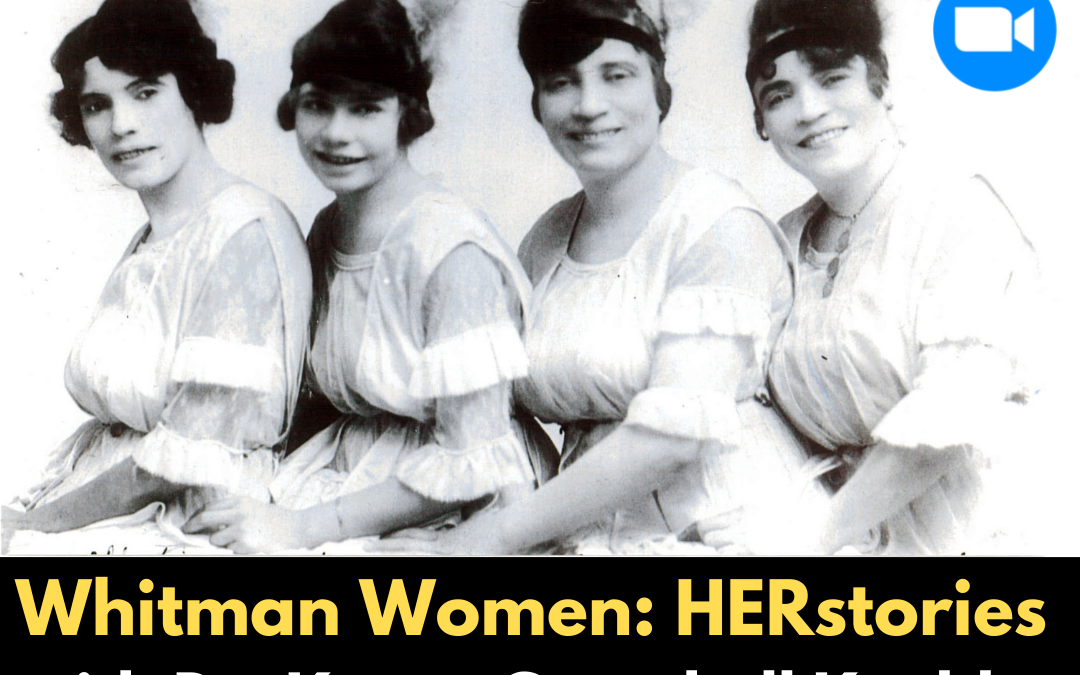
Nov 15, 2021
Thursday 2 December 2021 19:00 GMT | 11:00 PST | 14:00 EST | 20:00 CET £6/£4
Book here
Who were the Whitman Sisters? Join us to learn how the Whitman Sisters were trailblazers, performers, producers, and businesswomen as they brought innovative tap dance to Black Vaudeville. Dr. Karen Campbell Kuebler presents her findings from the media of the time, sharing the fascinating life stories that highlight the links between then and now. As an experienced educator, Karen offers ideas and resources to broaden your approach to teaching tap dance history considering issues such as race and gender in performance.
Karen Campbell Kuebler is always moving and learning. As an undergraduate dance major in the 1980s, Kuebler realized her knowledge in dance history was severely lacking. This initiated a career-long research initiative to explore, connect, and apply dance history in her teaching and learning process. Kuebler began teaching Dance and French in Baltimore County in 1991. Since 2009, Kuebler has taught Dance History courses at Towson University in Baltimore, Maryland and presented her research at conferences near and far since the 1990s. Kuebler shares her passion for dance history with her elementary students, colleagues, university students, family, and friends. She is excited to share the HERstory of the Whitman Women in her first textbook and looks forward to more revelations in dance history research.
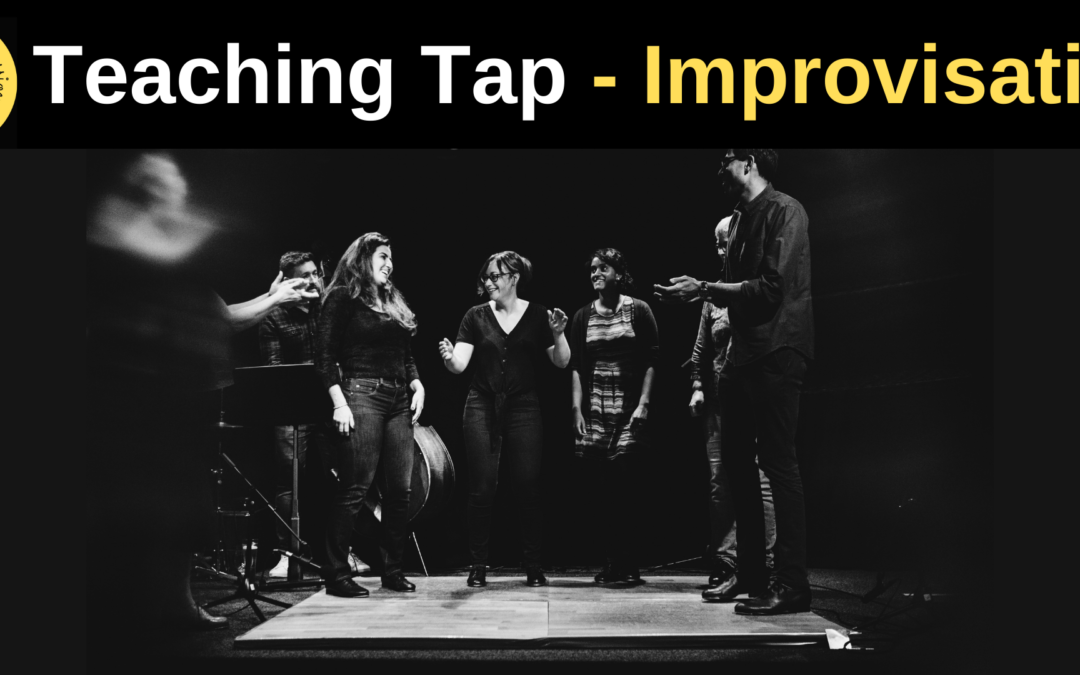
Nov 15, 2021
Tuesday 22 February 19:30 GMT | 11:30 PDT | 14:30 EST/EDT | 20:30 CEST FREE
Book here
The next few sessions will focus on key areas of tap dance teaching and education. In each session, Trish Melton and other members of the group, will share their thoughts and experiences from their own teaching practice and research in tap dance pedagogy.
Improvisation is a core skill of a tap dancer and this discussion will highlight teaching strategies in use in various practices which are aimed at developing improvisational skills through listening to the music through our ears and our feet.
Trish Melton will share games and activities drawn from practices used back in vaudeville but updated for todays studio: trading and “stealing” steps, for example. Jess Murray will share her approach to delivering tap classes and training programs that centre improvisation to develop technique, musicality and creative devising strategies.
As well as sharing ideas, techniques and resources, we will open the floor for you to have group conversations, ask questions and share your own approaches.
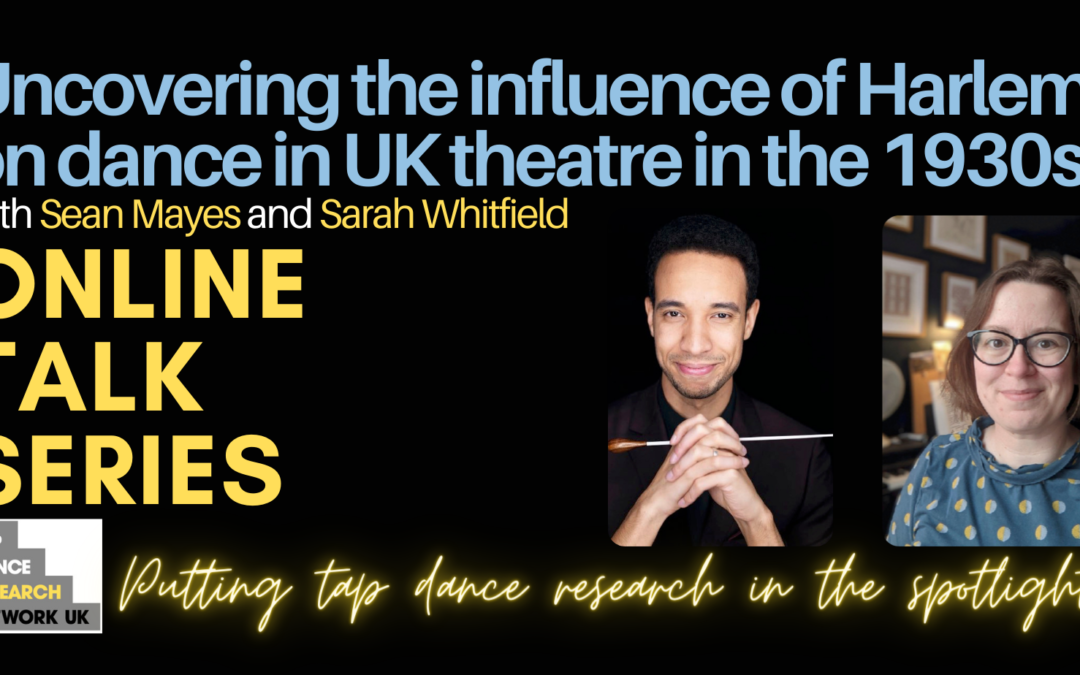
Apr 29, 2021
Tickets: £6 / £4 book here
Presentation by Sean Mayes and Sarah Whitfield followed by Q&A and open discussion.
Though some key Black practitioners like Louis Armstrong and Cab Calloway’s visits to the UK are reasonably well known, the influence of Black dancers, choreographers and practitioners in the 1930s is little discussed despite their extensive presence in theatre in the UK. Many African American dancers like the Nicholas Brothers, Nyas Berry and Peg-Leg Bates performed not only in the West End but across the UK. Another aspect of Harlem theatre’s influence on the UK has been little considered, through the work of choreographers like Buddy Bradley who reshaped not only tap in the UK but also jazz ballet, and Clarence Robinson (known for his work at the Cotton Club and Stormy Weather) who worked in the UK for a year transplanting revues. We explore the work of these key figures, and the influence of practitioners from both the Caribbean islands and the mainland Caribbean region who had visited and worked in Harlem in the 1920s like Ken ‘Snakehips’ Johnson (born in Guyana) and Sam Manning (born in Trinidad). Join us as we uncover how Harlem theatre reshaped British dance practices.
Sean and Sarah are co-authors of An Inconvenient Black History of British Musical Theatre 1900 – 1950.
Sean Mayes is an MD & conductor, his work has involved productions on stages across the United States, Canada and the United Kingdom. He is an active member of the Broadway community as an MD, orchestrator-arranger, vocal coach, accompanist & pit musician. In Spring 2019, Mr Mayes was Music Director and Conductor of the all-Canadian premiere of The Color Purple. He is based between New York City and Toronto.
Sarah K. Whitfield is a Senior Lecturer in Musical Theatre at the University of Wolverhampton. She writes about the history of musical theatre, and recovering the work that women and minoritised groups through archival research and digital humanities. She is based in the West Midlands, UK.
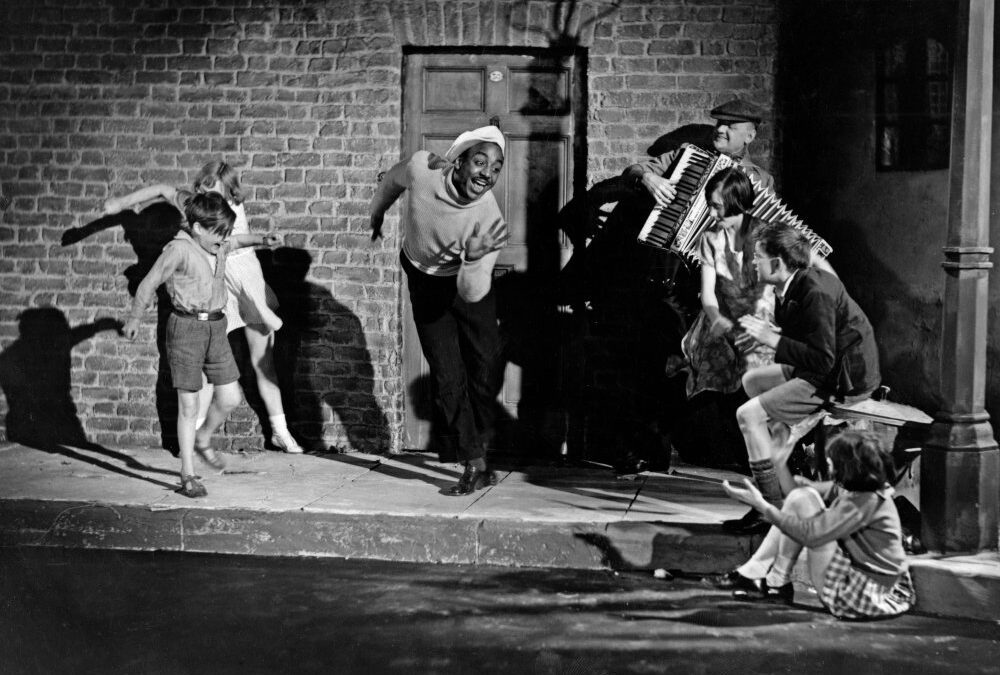
Feb 25, 2021
Wednesday 17 March 2021 19:00 GMT
By Annette Walker with special guests.
Ticket price per event £6 full price/ £4 students, unwaged, low income. Book here
In the late 1920s and early 1930s, Buddy Bradley was coaching many stars of Broadway musicals, including Fred and Adele Astaire, Ruby Keeler, and Eleanor Powell. However despite being well known (and well paid) within show business he never received credit for choreographing a show with a white cast in America. In 1930 Buddy was invited to London to choreograph for Jessie Matthews’s show, Ever Green at the Aldephi Theatre for which he received his first choreographic credit. It was a great success for both Jessie and Buddy and in 1934 it was made into the first British musical film, Evergreen, launching him into the emerging English film industry. Buddy staged over thirty musical productions during the 1930s and choreographed a number of British musical films during his thirty-eight years in Britain.
There is little reference of Buddy’s creative work but researcher Annette Walker has sourced clips of his choreography from several British musical films, including an uncredited, rare glimpse of Buddy himself. There’ll be a presentation about Buddy’s life and work in America and Britain and a closer look at his style through film footage as well as a discussion about his wider influence on dance.
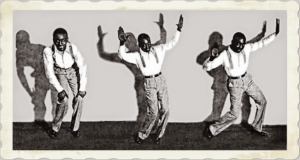
TDRN UK is a volunteer led, ‘non-profit’ community interest company and funds generated from ticket sales are used to cover overheads of running events. However, we are committed to making our events accessible to all and hold a number of tickets available free of charge to those unable to fund a ticket. Please contact us directly should you require one admin@tdrnuk.com.





